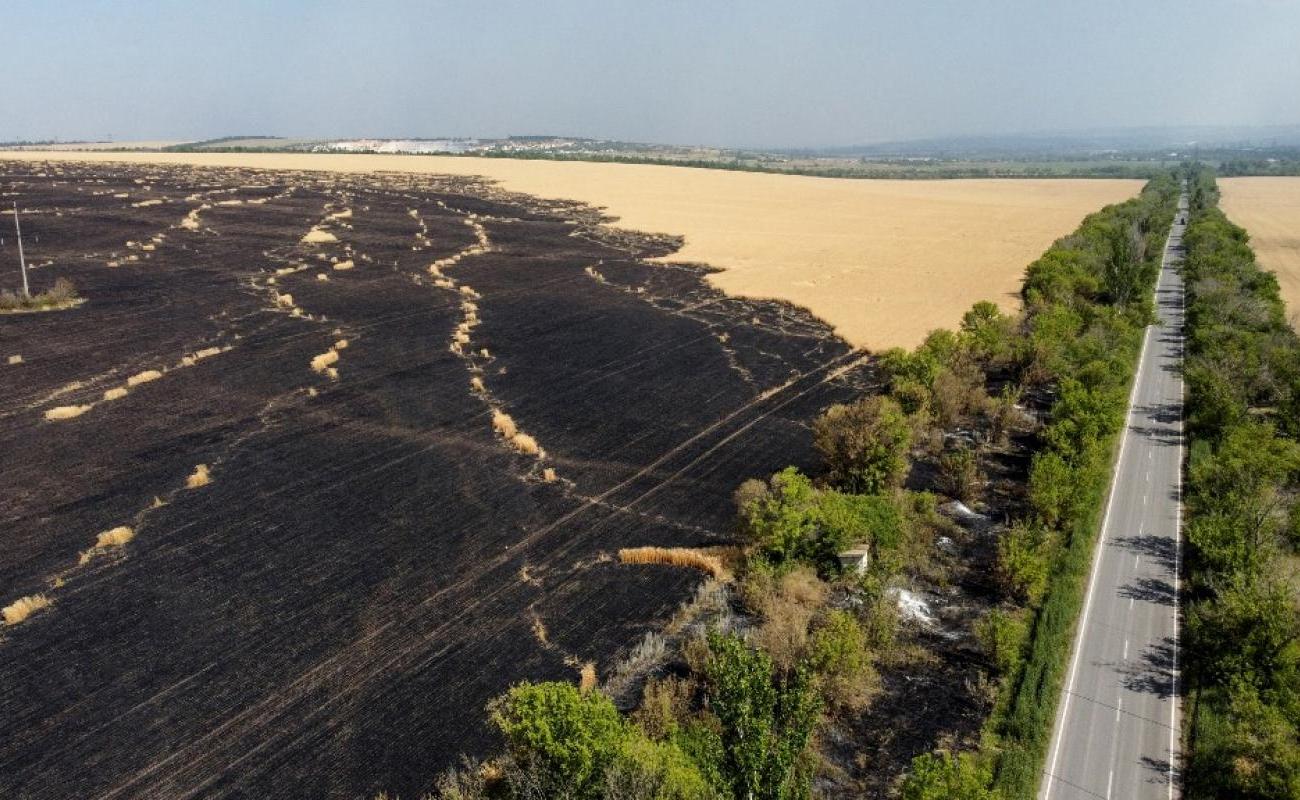More Russian Air Strikes Hit Ukraine's Black Sea Regions, Despite Grain Deal

Russia targeted Ukraine’s southern Black Sea regions of Odesa and Mykolayiv with air strikes on July 26, hitting private buildings and port infrastructure, the Ukrainian military said.
The buildings that were hit in the Odesa region caught fire, Ukraine’s Operational Command South said on Facebook. In the Mykolayiv region, port infrastructure was targeted despite a deal intended to allow grain shipments to resume from Ukraine's Black Sea ports.
A Ukrainian Air Force spokesman said long-range Russian bombers and fighter jets launched the strikes from the Black Sea.
The attacks came days after Russian strikes that hit Odessa called into question a deal to resume exports of grain from Ukraine that have been blocked because of the war.
Hours after the strikes on July 26, Kirill Stremousov, the Moscow-appointed deputy head of the military-civilian administration of the Kherson region, said the Odesa and Mykolayiv regions would soon be “liberated” by Russian forces.
The Ukrainian military said separately that it shot down a Russian drone that was trying to attack a radar station in the Mykolayiv region.
Russian shelling over the previous 24 hours killed at least three civilians and wounded eight more in Ukraine, the Ukrainian president’s office said on July 26.
Shelling continued along the entire front line in the eastern Donetsk region as Russian forces targeted Bakhmut and other cities, the presidential office said.
The head of the military administration of the eastern Donetsk region, Pavlo Kyrylenko, again accused Russian troops of using illegal cluster munitions and repeated his call for civilians to evacuate.
“There is not a single safe place left. Everything is being shelled," Kyrylenko said on Ukrainian television. "But there are still evacuation routes for the civilian population.”
Britain said earlier that there was "no indication" that a Ukrainian warship and a stock of anti-ship missiles were located in the Black Sea port of Odesa at the weekend, contradicting the Kremlin's claim that it targeted a Ukrainian ship and military installations with a missile strike on July 23.
The strike came a day after an agreement on the export of grain by Russia, Ukraine, the United Nations, and Turkey raised hopes that a global crisis could be averted after a spike in food prices prompted by the Ukraine war.
Ukraine is one of the world’s largest exporters of wheat, corn, and sunflower oil, but Russia’s invasion of the country and its naval blockade of Ukrainian ports have halted shipments.
Russian Foreign Ministry spokeswoman Maria Zakharova on July 24 acknowledged the missile strikes on Odesa the day before but claimed that they had destroyed “military infrastructure” and a Ukrainian Navy “patrol boat.”
The British ministry said Russia sees Ukraine’s use of anti-ship missiles as “a key threat” limiting its Black Sea Fleet.
“This has significantly undermined the overall invasion plan, as Russia cannot realistically attempt an amphibious assault to seize Odesa,” the ministry said. “Russia will continue to prioritize efforts to degrade and destroy Ukraine’s anti-ship capability.”
However, Russia's targeting processes “are highly likely routinely undermined by dated intelligence, poor planning, and a top-down approach to operations," the intelligence update concluded.
The Russian Defense Ministry said on July 26 that it plans to hold strategic military exercises in the east of the country starting next month.
The "Vostok" (East) exercises will take place in the Far East from August 30 to September 5, the ministry said.
In addition to the troops of the Eastern Military District, some airborne forces and military contingents of other states will take party, the ministry said, according to Interfax.
The exercise appears intended to show that Russia is capable of sustaining its schedule for such exercises and that it remains focused on the defense of its entire territory.
The ministry statement emphasized that its capacity to stage such drills was unaffected by what it calls its "special military operation" in Ukraine.
